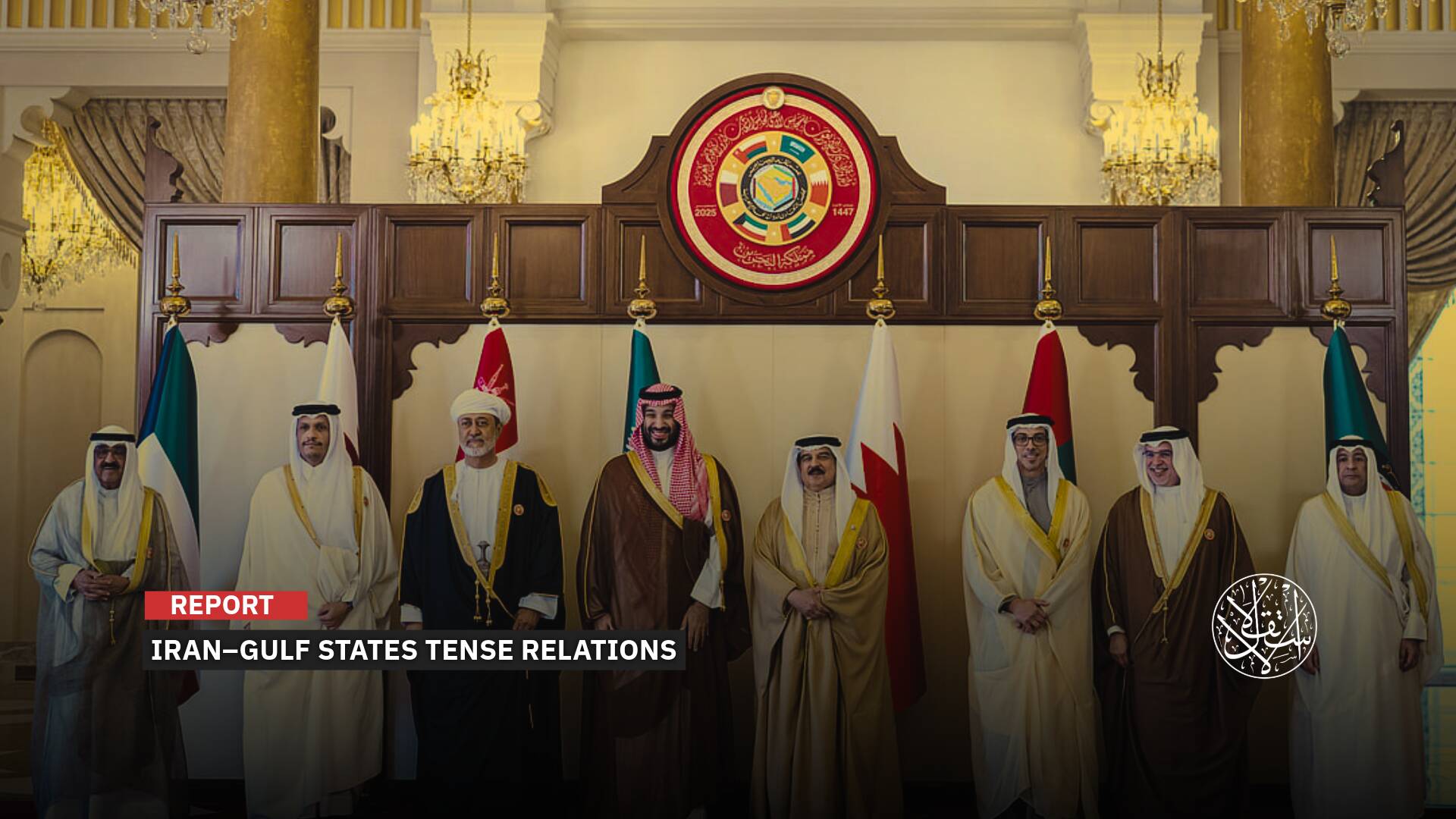What Are the Consequences of the ICC Arrest Warrants against Netanyahu and Gallant?

“International reactions to the ICC’s arrest warrants against Israeli leaders have been varied.”
“Israel” faces a significant risk of sanctions against its entities and individuals following the International Criminal Court’s decision to issue arrest warrants against Israeli Prime Minister Benjamin Netanyahu and his former Army Minister Yoav Gallant on charges of war crimes in Gaza.
The ICC’s Pre-Trial Chamber I rejected Israel’s appeals regarding the court’s jurisdiction over it, stating that Israel’s acceptance of the court’s jurisdiction is not necessary.
Hamas welcomed the arrest warrants against Netanyahu and Gallant, describing them as an important step toward achieving justice, while the Israeli government described the decision as anti-Semitic and denied committing war crimes in Gaza.
While the United States also condemned the court’s decision, several countries around the world, including France, the UK, Italy and the European Union, expressed their respect and commitment to implementing international resolutions.
The ICC decision is a major blow to “Israel”, according to analysts, noting that the judges’ decision to publish the indictment is a very dangerous sign and could be the beginning of broader sanctions.
Criminal Responsibility
On November 21, 2024, the ICC issued arrest warrants for both Israeli Prime Minister Benjamin Netanyahu and his recently dismissed Army Minister Yoav Gallant for war crimes and crimes against humanity committed between October 8, 2023 and at least May 20, 2024.
It added that the crimes committed by Netanyahu and Gallant fall within its jurisdiction, explaining that this jurisdiction extends to Gaza and the West Bank, including East Jerusalem.
The ICC said it found reasonable grounds to believe that Netanyahu and Gallant bear criminal responsibility as participants in committing war crimes in Gaza, overseeing attacks against civilians, and using starvation as a weapon against Palestinians.
The court also concluded that Netanyahu and Gallant intentionally deprived the civilian population in Gaza of the basics of daily life, including food, water, medical supplies, fuel, and electricity.
It noted that Israeli decisions regarding the entry of humanitarian aid into Gaza were often conditional, noting that Netanyahu linked humanitarian aid to the war objectives he had previously set.
The court said it was continuing to investigate crimes in the ongoing conflict and expected to submit more requests to issue arrest warrants for others.
It is noteworthy that on November 17, 2023, the ICC received a request from South Africa, Bangladesh, Bolivia, Comoros and Djibouti to investigate war crimes committed by “Israel” in the Gaza Strip and the West Bank.

Israeli Hysteria
In contrast, “Israel” has witnessed a state of complete hysteria in terms of statements condemning the recent ICC decision.
Israeli PM Benjamin Netanyahu’s office rejected the decision, describing it as anti-Semitic and absurd.
The office said in a statement: “Netanyahu will not yield to pressure to defend Israeli citizens and will not back down until Israel achieves all of its war goals.”
On his part, Gallant said that the decision will always be remembered in shame, as it puts “Israel” and Hamas leaders on the same page.
Israeli President Isaac Herzog called the ruling a black day for justice and humanity, accusing the court of supporting terrorism and evil against democracy and freedom.
In a rare show of unity, Netanyahu’s leading rivals joined allies in his government in criticizing the ICC, saying responsibility for the war lay with Hamas.
Former PM Naftali Bennett claimed that the ICC’s arrest warrants were a stain not on Israel’s leaders but on the court itself and its members.
Israel’s most prominent opposition leader Yair Lapid also called the court’s decision a reward for terrorism.
Former Israeli Army Minister Benny Gantz criticized what he called the ICC’s moral blindness, calling the ruling a historical stain that will never be forgotten.
Far-right National Security Minister Itamar Ben-Gvir also called the arrest warrants an unprecedented scandal.
“Israel must respond by applying sovereignty over all of the West Bank, settling throughout the country, and severing ties with the Palestinian Authority,” he said.

US Response
In the same context, the White House National Security Council spokesman said that the United States rejects the arrest warrants issued by the ICC against Netanyahu and Gallant.
He added that “the United States has been clear that the ICC has no jurisdiction over this matter, and we are discussing next steps in coordination with partners, including Israel.”
President Joe Biden later issued a statement, describing the arrest warrants as outrageous, stressing that the U.S. will always stand with “Israel” and against threats to its security.
In turn, Mike Waltz, Trump’s pick for National Security Advisor, vowed a strong response to the ICC and the United Nations in January.
On his part, Republican Senator Lindsey Graham, President-elect Trump’s close ally, described the court as a rogue organization with political motivations, calling for sanctions against the court.
He also announced that he would introduce a bill warning countries that if they assist the ICC after its actions against Israel, they can expect consequences from the United States.
Despite this position, Graham welcomed the ICC’s arrest warrant for Russian President Vladimir Putin in March 2023, noting that Russia, like Israel, is not a member of the court.
European Welcome
Several European countries also expressed their respect for the ICC decision, while the EU considered that the arrest warrants against Netanyahu and Gallant are not political and are binding on all members of the bloc, and that the court’s decision must be respected and implemented.
The Netherlands, Switzerland, Ireland, Italy and Spain have said they will abide by their commitments and obligations under the Rome Statute and international law.
Austria has said it will do the same, although its Foreign Minister Alexander Schallenberg has called the arrest warrant absurd.
Italian Defence Minister Guido Crosetto has indicated that his country would have to arrest Netanyahu if he visits, but added that he would be against any sanctions against Israel.
A spokesman for UK PM Keir Starmer said the UK respects the independence of the ICC, claiming that there is no moral equivalence between “Israel”, a democratic state, and Hamas and the Lebanese Hezbollah groups, terrorist organisations.
French Foreign Ministry spokesman Christophe Lemoyne said that France’s response to the ICC warrant for the arrest of Netanyahu and Gallant would be in line with the court’s principles, noting that its implementation could be legally complicated.
Norwegian Foreign Minister Espen Barth Eide stressed that it was important that the ICC implements its mandate in a judicious manner.
Swedish Foreign Minister Maria Malmer Stenergard noted that Stockholm and the EU support the important work of the court and protect its independence and integrity.
Canadian Prime Minister Justin Trudeau also confirmed that his country will abide by all regulations and rulings of international courts.

Political Consequences
The recent ICC decision against Israeli officials has legal and political dimensions, and could expose Netanyahu and Gallant to arrest in any of the 124 countries that signed the Rome Statute that established the court.
Although the implementation of these warrants depends on the will of member states, their issuance constitutes a symbolic condemnation and a clear international position on the crimes committed in Gaza.
Analysts believe that the probability of Netanyahu and Gallant being arrested in the near future is slim given the political and logistical complications, but the warrants remain valid and do not expire over time, and can be activated if political circumstances change or international pressure increases.
The ICC’s action is a powerful political message that could affect Netanyahu and Gallant’s international reputation, especially in countries that support the Palestinian cause or adhere to international law.
While the arrest warrants may not be immediately enforceable, they are seen as a moral judgment and a call for justice that could influence global public opinion and re-shed light on the suffering of civilians in Gaza.

In turn, political analyst Ismail Maslamani explained in a statement to Al-Estiklal that the arrest warrants against Netanyahu and Gallant have several consequences, including the inability of Netanyahu and Gallant to travel to a large number of countries, in addition to the possibility of issuing many other secret arrest warrants against Israeli political and military leaders.
He indicated that this decision would lead to increased international pressure on “Israel” around the world, and perhaps obstruct potential arms deals between European countries and “Israel”, which could mean increasing Tel Aviv's isolation.
Mr. Maslimani also pointed out that the ICC’s decision shows “Israel” as a state that commits crimes against humanity, in addition to destroying the image that it tried to build that its war on Gaza is justified.











